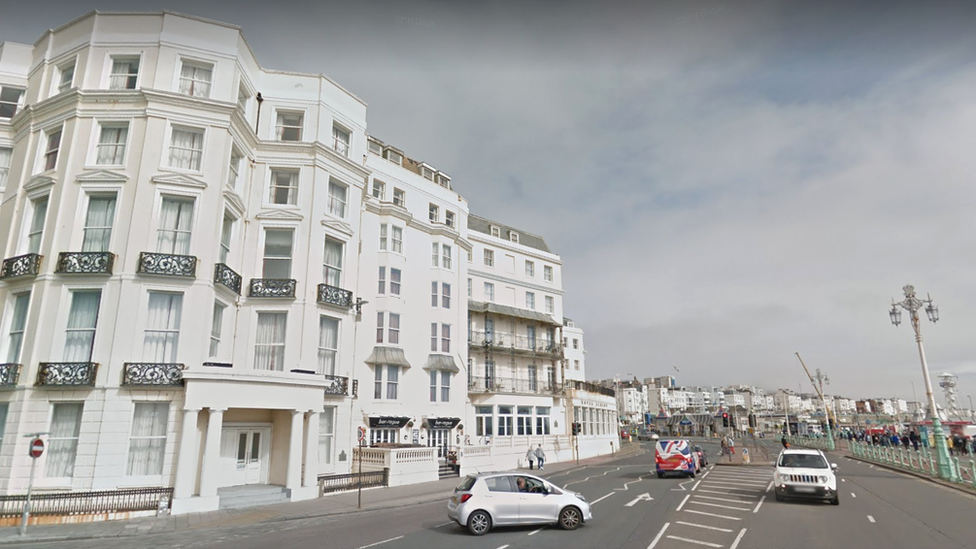Black Lives Matter: Brighton street names reviewed for links to slavery
- Published

The Royal Albion Hotel bears a plaque to former prime minister William Gladstone
All street names in Brighton and Hove are being reviewed for possible links to the slave trade, the city council has said.
Statues, monuments and plaques are also being scrutinised and any found to have links to slavery will be removed.
Council leader Nancy Platts said Black Lives Matter protests highlighted "colonial statues and street names".
Street art installations which "celebrate the black community" will also be commissioned, she said.
Two locations in the city, including a plaque to former prime minister William Gladstone on the Royal Albion Hotel, have been named on a list of statues and monuments that are said to "celebrate slavery and racism".
The council said it would contact the owners of the two private properties "to ask them to consider their appropriateness".
The University of Liverpool has agreed to rename a building named after Gladstone, who spoke out against abolition in Parliament because his family had slaves on plantations in the Caribbean.
Brighton and Hove City Council would not say if any sites on public land had yet been identified for removal or renaming.
'Not acceptable'
The Royal Pavilion & Museums in Brighton said that in March it set up a group of staff and volunteers dedicated to "decolonising" the museum.
It said it was aware there are "items in our collections which were acquired under conditions which would not be acceptable today".
Ms Platts said people should contact her directly "if they are aware of any statues, monuments, street or building names which cause them concern".
Historians and local black, Asian and ethnic minority communities are being consulted to "ensure we fully understand the history of our statues and street names," she said.
Britannia Hotels, owners of the Royal Albion, have been contacted for comment.